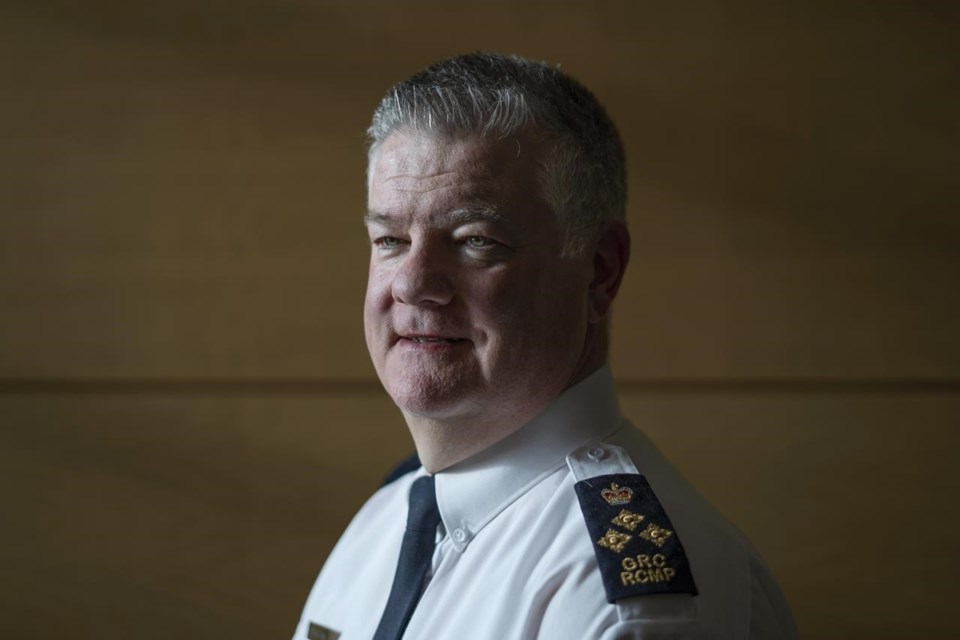HALIFAX — The RCMP's new commanding officer in Nova Scotia believes the public wants a renewed relationship with his police force despite its widely criticized response to the 2020 mass shooting.
Assistant Commissioner Dennis Daley said in an interview Wednesday that while it's possible a public inquiry may call for the province to look at alternative policing models, he is confident Nova Scotians "still want the RCMP as their provincial police."
"There's challenges every senior leader faces when they come into a new job," he said, when asked how badly trust has been shaken. "My job is to be more forward-looking."Â
The 56-year-old officer said it will be his job in the coming years to rebuild relationships with the public, municipal governments and other police forces.
The public inquiry into the mass shooting has heard of many shortcomings in the RCMP response, including a failure to issue emergency alerts, staff shortages limiting the number of officers available when killing began in Portapique, N.S., and a lack of basic gear to help officers keep track of one another in the dark.
Twenty-two people, including a pregnant woman, were killed by a 51-year-old gunman on April 18-19, 2020, as he drove a replica police car across central Nova Scotia before being killed by RCMP officers at a gas station.
Daley said he can't comment on all of the details of what occurred before his arrival but said there are improvements occurring.
He pointed to the introduction of protocols allowing the RCMP to send out their own emergency alerts, noting the system has been used a number of times in the past year.
The commander said smartphone apps are being introduced to help officers track one another in the dark, and there is a new critical incident centre in the Halifax divisional headquarters — and better protocols for handling emergencies.
Still, the mass shooting revealed deep divisions between the RCMP and municipal police forces, as the Mounties didn't reach out initially to ask for assistance and the Truro police chief was left unaware a mass killer was transiting his town.
Daley said he anticipates recommendations from the inquiry calling for police leaders to work more closely together in future.
The officer joined the RCMP in 1988, and his last job was assistant commissioner of contract and Indigenous policing at Ottawa headquarters — giving him close ties to the existing system of RCMP policing of rural communities.
Some academics who have followed the public inquiry have suggested the shootings should lead to a major overhaul. Kent Roach, a law professor and author of a book on Canadian policing, has written that "the only legitimate remedy" if the RCMP can't consult more effectively with its partners is for it to stop serving as the police force for municipalities and provinces.
However, Daley said if the Mounties were to end their role in provincial and municipal policing in Nova Scotia, it would be the result of reviews and political decisions, rather than recommendations by the inquiry.
In the meantime, he said he wants to make the Nova Scotia division more transparent.Â
During the mass shooting, initial communications on the night of April 18 only indicated a "firearms complaint," rather than a mass shooter carrying out a rampage, and the next day it took over two hours to act on a senior officer's order to send out a photo of the replica vehicle.
Wade Parker, a councillor in Colchester County — the region where the killings started — said in a recent interview the RCMP's changes to date are "absolutely not" sufficient to restore trust in the Mounties among residents. "In my area, the average person is skeptical," he said.
He said much will hinge on whether the RCMP starts to add more officers to its rural police force, ensuring enough Mounties are put in place to protect his citizens, and if small detachments are set up in villages rather than in a centralized location.
Daley said ensuring full staffing complements in the various RCMP police districts remains hard due to challenges in recruiting new officers. He said currently about four per cent of available positions in Nova Scotia are unfilled.
The new commander said he believes the Mounties will nonetheless find ways to improve their performance, replenish staff and remain in the province.
"I would humbly disagree this has dealt a fatal blow to RCMP here in Nova Scotia .... We'll take the recommendations (of the public inquiry), we'll learn from the recommendations and we'll make some changes," he said.
This report by The Canadian Press was first published Dec. 14, 2022.
Michael Tutton, The Canadian Press

